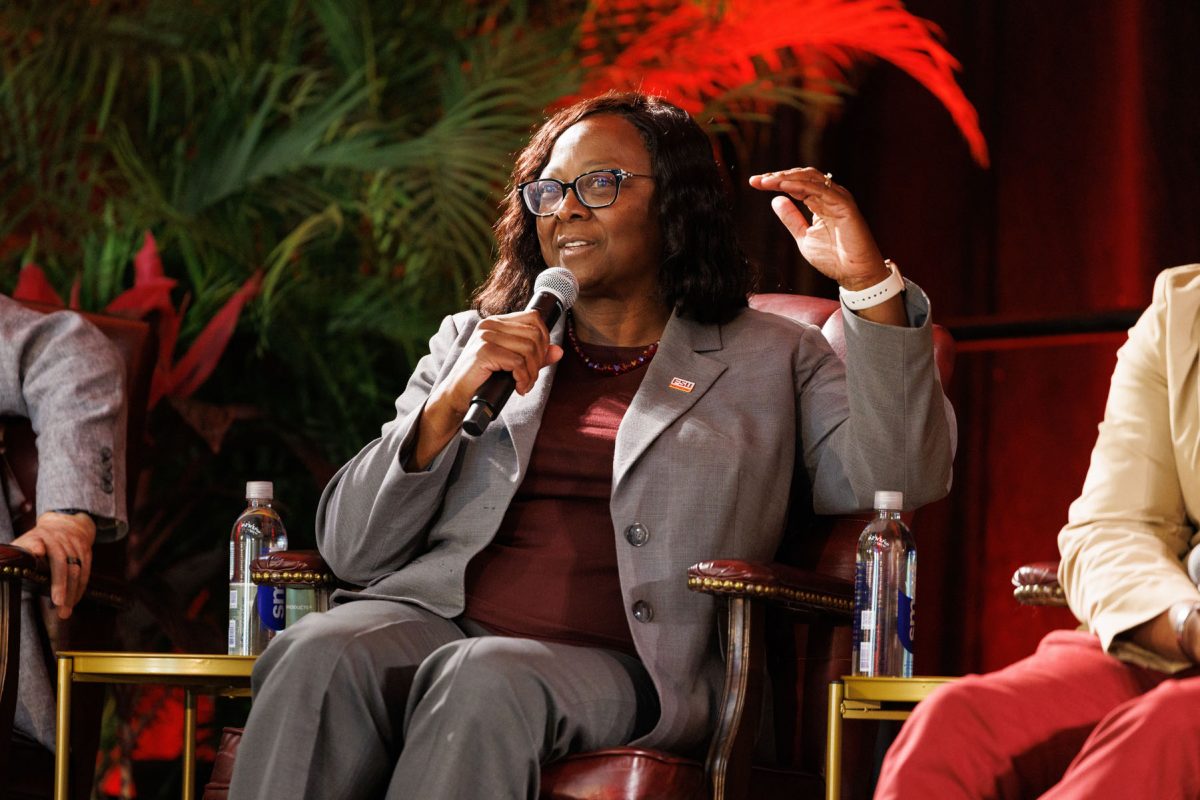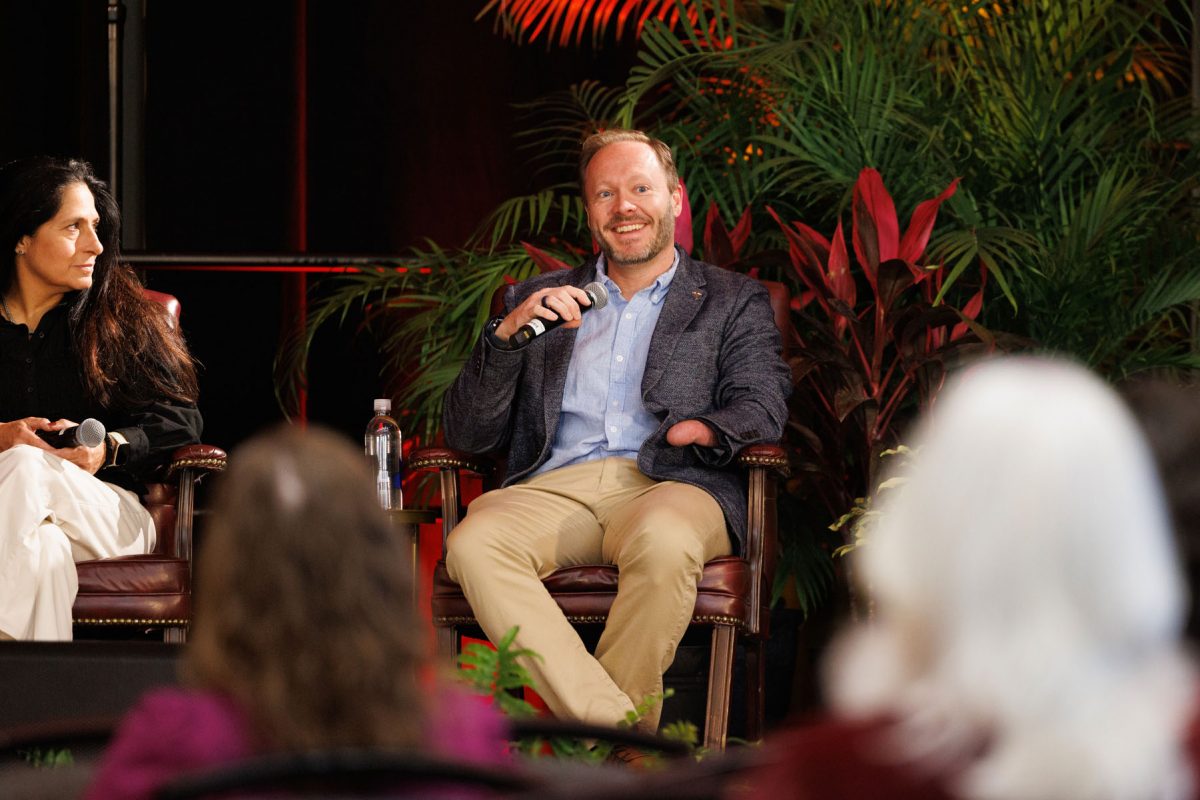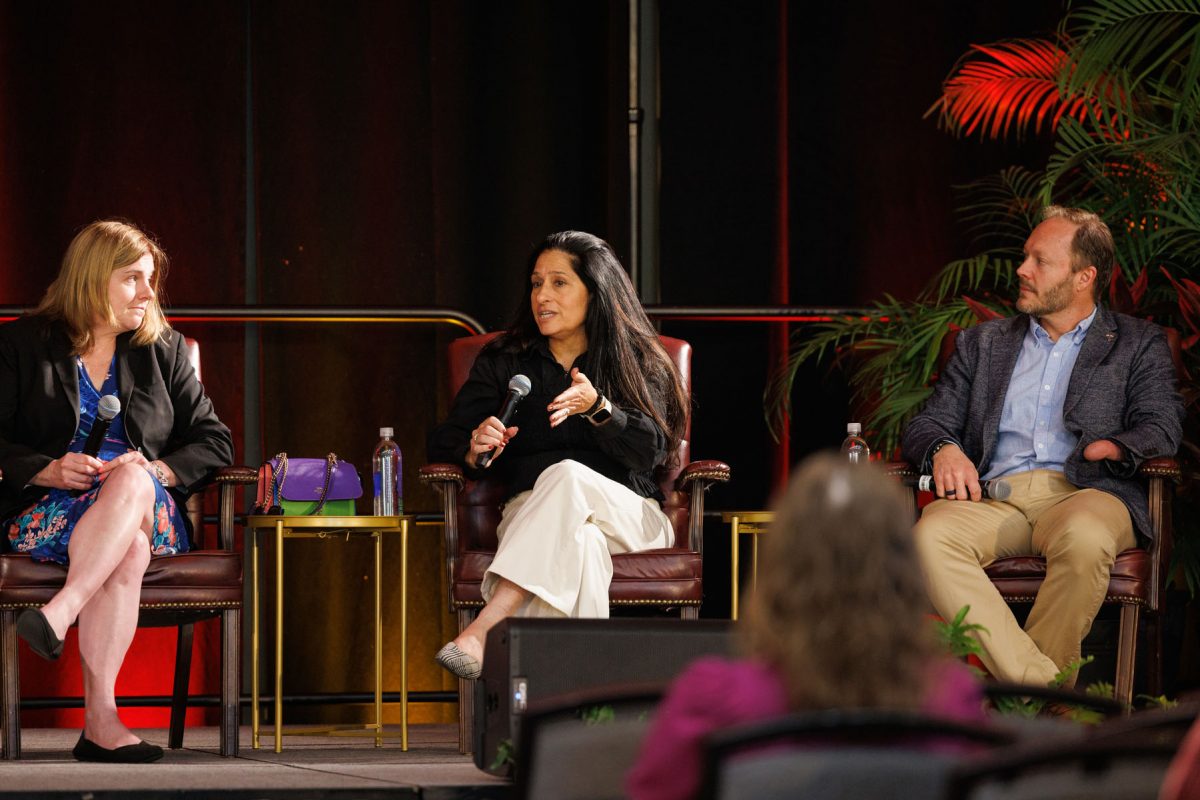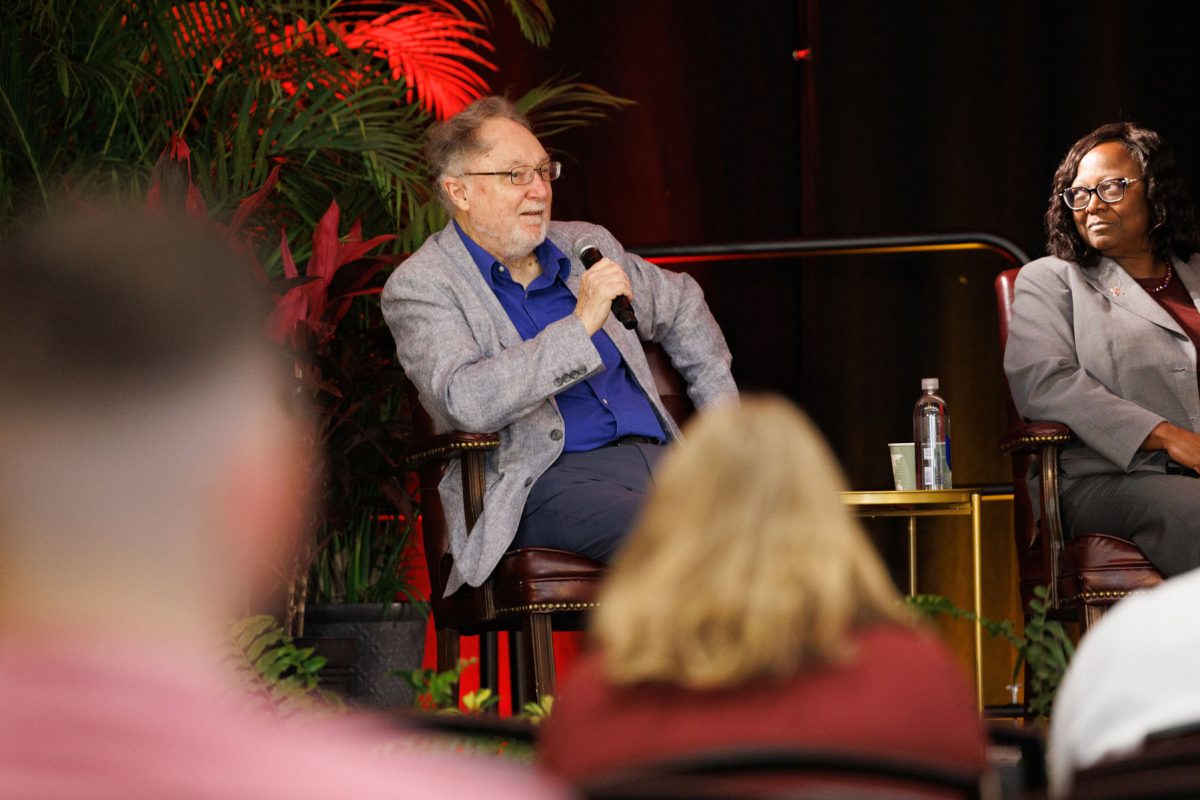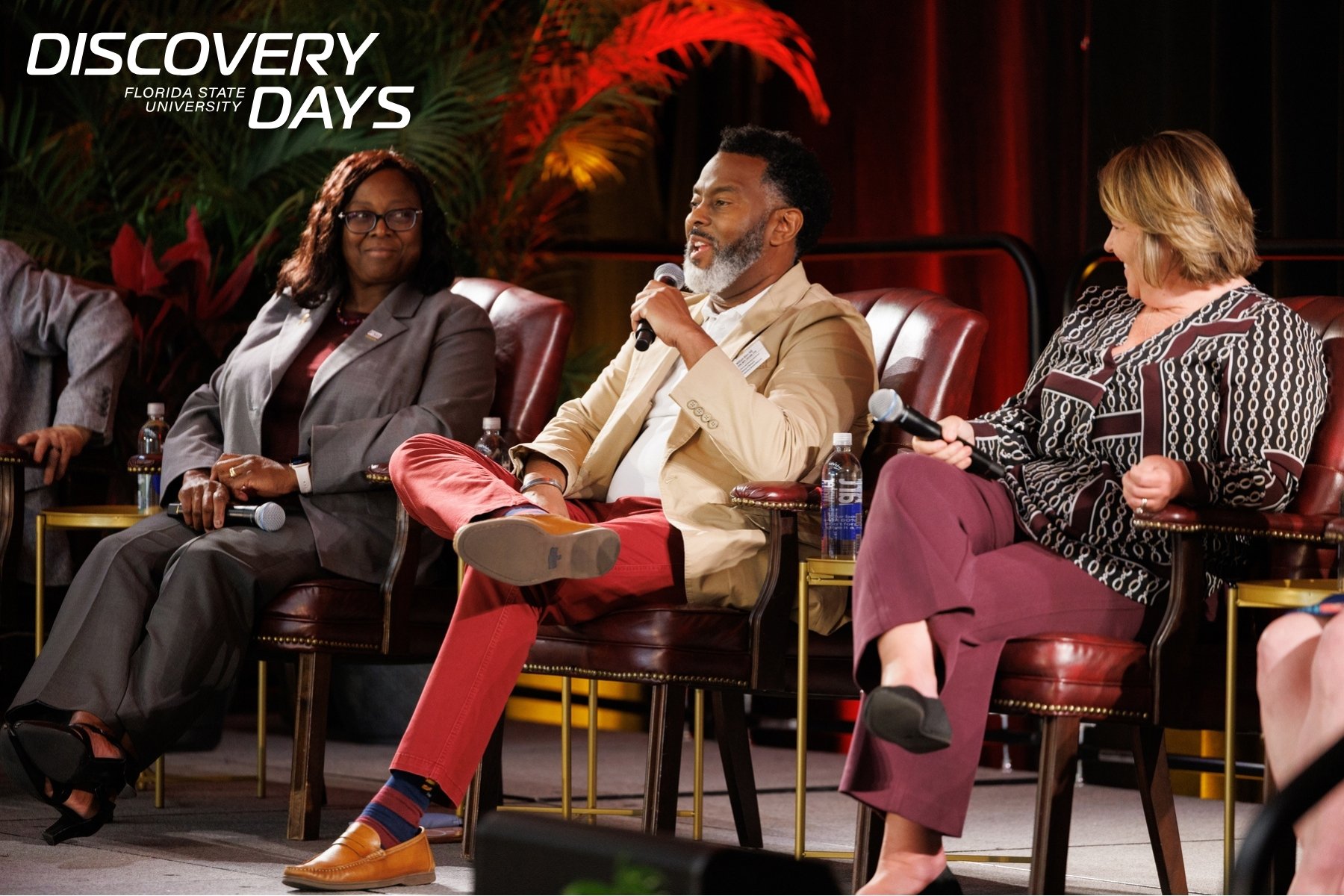
Florida State University students looked to the future during a Discovery Days panel on opportunities in STEM, when a lineup of FSU research and academic leaders came together to inspire attendees to see how their education can translate into a wide range of career opportunities.
The event, “Unlock Your Future: Career Paths for STEM Graduates,” offered students a chance to hear directly how STEM degrees can be applied in evolving fields beyond traditional academic paths.
“Your time at Florida State University is profoundly impactful in shaping who you are as a person. Your academic life is just one part of the college experience — what truly defines this time are the relationships you build, the challenges you embrace and the moments that help you grow beyond the classroom as you become the person you’re meant to be.“
— Stacey Patterson, Vice President for Research
“Your time at Florida State University is profoundly impactful in shaping who you are as a person,” said Vice President for Research Stacey Patterson. “Your academic life is just one part of the college experience — what truly defines this time are the relationships you build, the challenges you embrace and the moments that help you grow beyond the classroom as you become the person you’re meant to be.”
During the discussion, panelists offered insights and guidance through a lineup of experts who shared their professional journeys in fields such as medicine, laboratory science, university administration and corporate leadership.
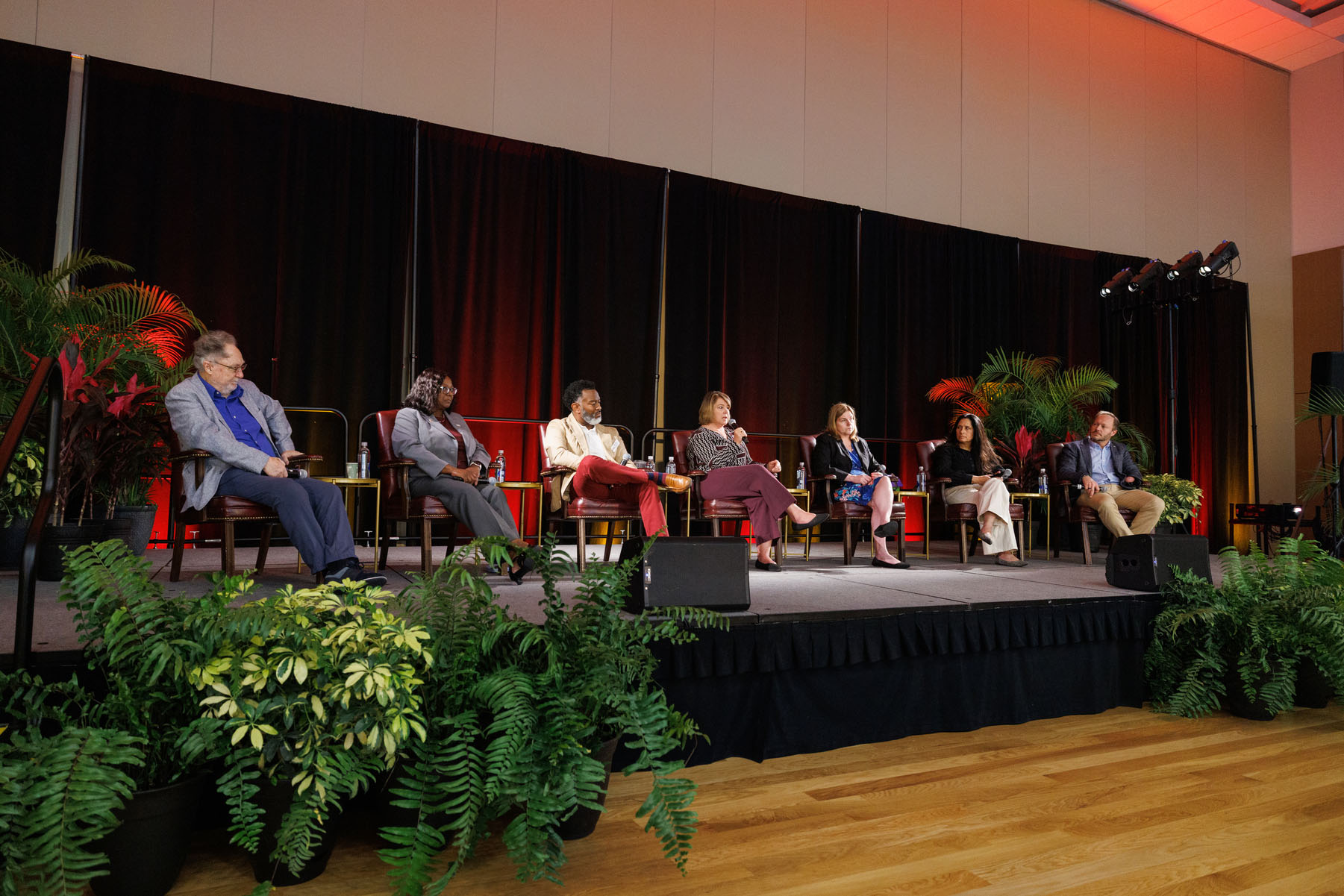
The panel featured FSU Vice President for Research Stacey Patterson, College of Medicine Dean Alma Littles, MagLab Director Kathleen Amm, Director of Laboratory Animal Resources William Hill, Associate Vice President for Strategic Partnerships and Innovation Valerie McDevitt, FAMU-FSU College of Engineering Professor David Larbalestier and Tallahassee Memorial HealthCare Associate Program Director and Core Faculty for the Family Medicine Residency Matthew Standridge.
Attendees were encouraged to think beyond traditional roles and consider how their STEM degrees could open doors in unexpected places.
“There are so many opportunities out there, and people don’t need to be afraid of exploring them and that’s what makes it exciting,” Amm said. “Even if you choose one path, you can always pivot later. The world is open to you, especially early in your career.”
A central theme of the discussion was the powerful role that mentors and peers play in helping students navigate their journey toward a fulfilling career.
“When you’re thinking about mentors, you don’t always have to look to people in higher positions,” McDevitt said. “A lot of times, your mentors are your peers and teammates. I’ve learned so much from everyone around me. You can identify people whose work or approach you admire and pull little pieces of that into your own practice.”
Panelists also emphasized the importance of maintaining a healthy balance between school and life, especially for students who often feel overwhelmed by the many responsibilities they face.
“At the end of the day, you are a human being, you are a person and you have other humans you depend on, who also depend on you,” Littles said. “Don’t get so wrapped up as you’re preparing for your next stage in life that you forget that.”
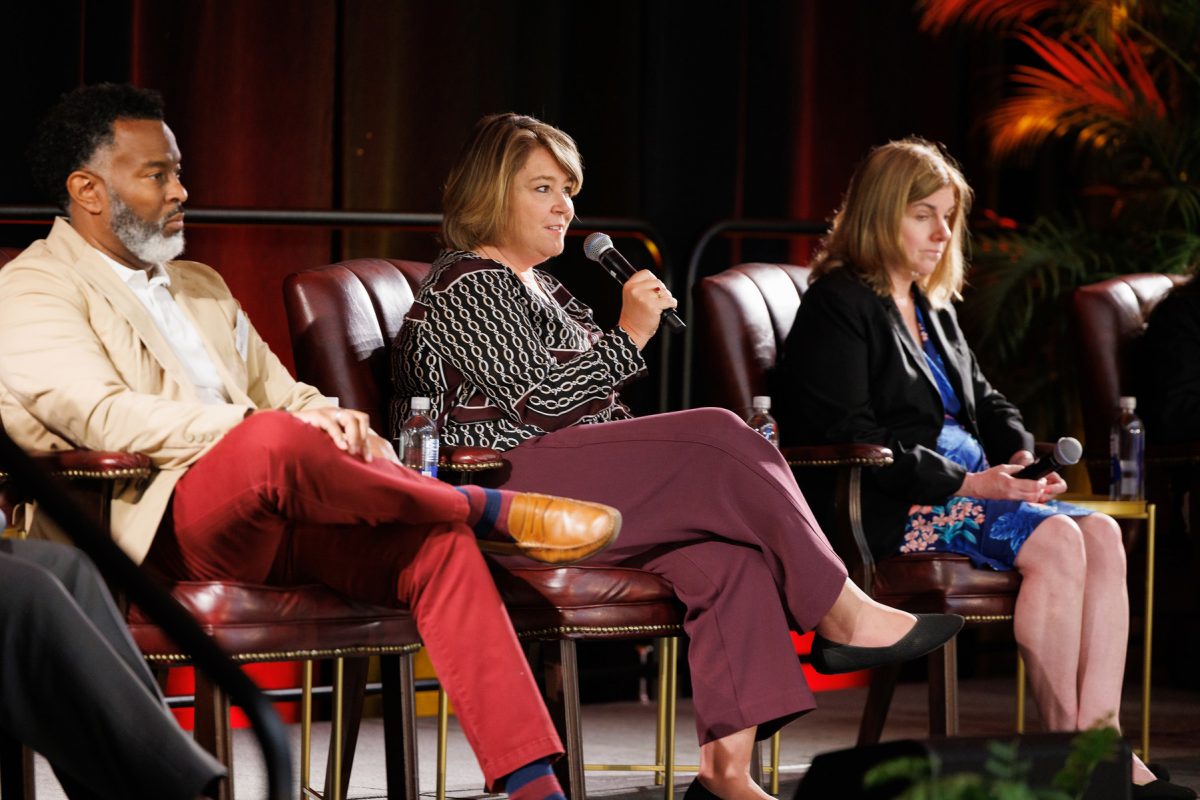
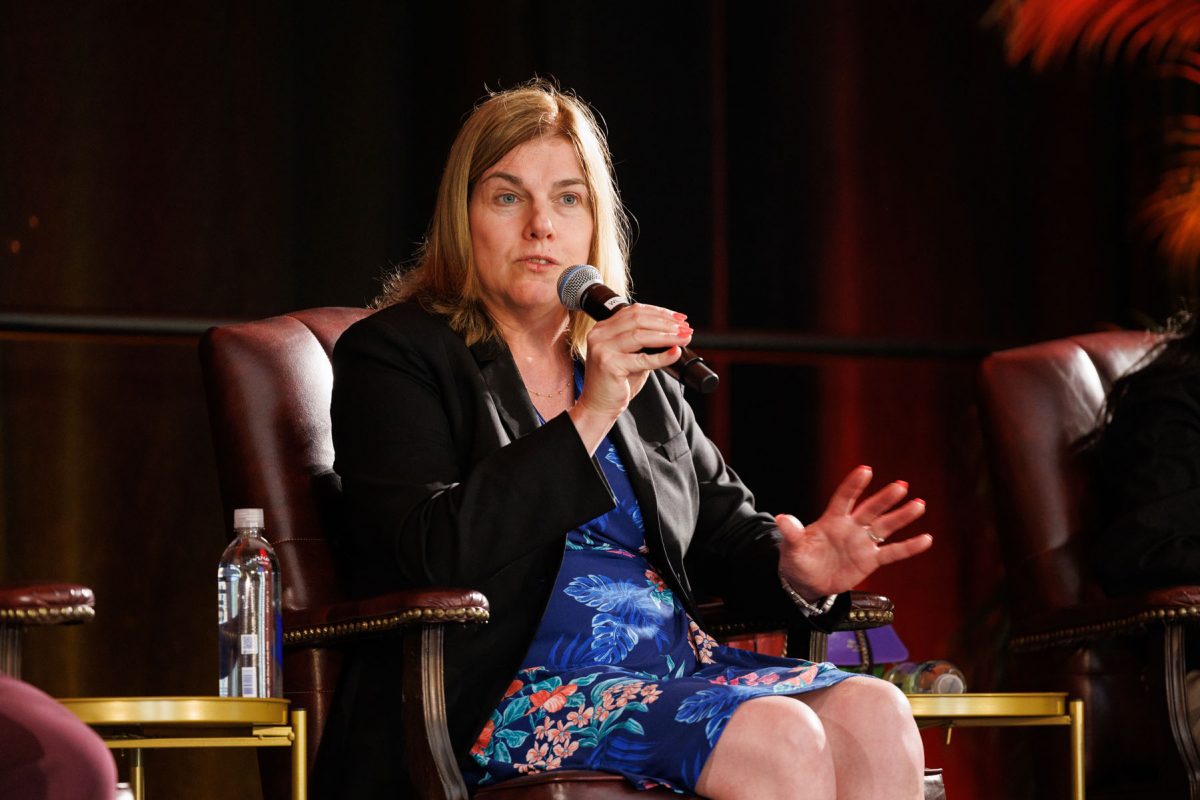
Encouraging students to focus not just on what they do, but on who they are becoming through the experiences they engage in but reminding them that personal growth and self-awareness are just as vital as academic and professional achievements.
“What I do is not who I am,” Hill said. “If all the letters behind my name are gone, I still have to deal with the reality of who I am as a person. That’s fundamental and it’s a message young people should hear early.”
Leighton Hartwell, an electrical engineering major at the FAMU-FSU College of Engineering and a tenor saxophonist in the FSU Marching Chiefs, said panels like this help him navigate the various opportunities at FSU and clarify his future career path preparation.
“It’s incredibly easy to get lost along your path, and having panels like these, where industry professionals and academic researchers share their insight, is so valuable,” Hartwell said. “They talk about what you should be doing as a student — how to get involved, manage your time and focus on what’s really important — while also emphasizing the value of being social and building a network. Having that kind of advice imparted by these people is very enlightening, and it helps me pinpoint what I want to do in the future.”
For students in attendance, the message was clear: the future is wide open, and their STEM education is the key to unlocking it.




